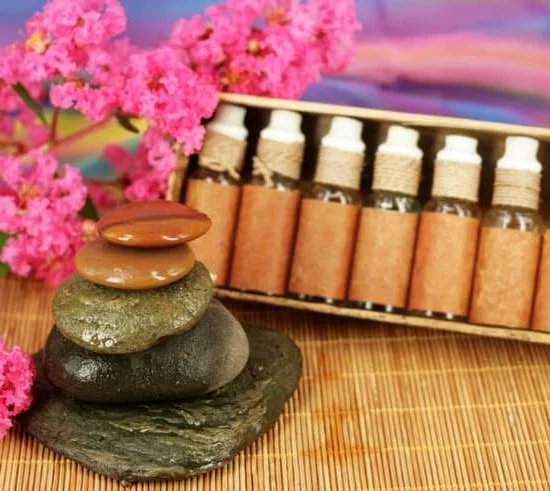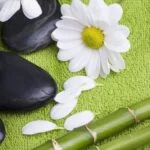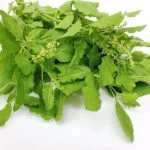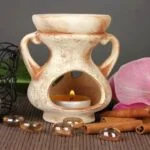Aromatherapy has become increasingly popular in recent years, with more and more people turning to essential oils and other natural remedies for a variety of health and wellness benefits. In this article, we will explore the steps to building a successful aromatherapy business, from identifying your niche in the industry to creating a solid business plan and developing effective marketing strategies.
Aromatherapy is the practice of using natural plant extracts, such as essential oils, to promote physical and psychological well-being. The benefits of aromatherapy are vast, ranging from stress relief and relaxation to improved sleep and increased energy levels. As more individuals seek out alternative holistic approaches to health and wellness, the demand for aromatherapy products and services continues to grow.
When starting an aromatherapy business, it is crucial to first understand the fundamentals of aromatherapy and its benefits in order to effectively cater to the needs of potential customers. By developing a strong foundation in aromatherapy knowledge, entrepreneurs can position themselves as trusted experts in the field, ultimately attracting loyal customers who value their expertise.
It is important for aspiring aromatherapists to consider what unique value they can offer within the industry – whether it be specialized products, targeted services or exclusive knowledge – which will set them apart from competitors.
Identifying Your Niche
When it comes to building an aromatherapy business, one of the most crucial steps is identifying your niche and finding your unique selling point in the industry. Aromatherapy is a diverse and competitive market, so it’s essential to carve out your own space and differentiate yourself from other businesses. One way to do this is by specializing in specific types of aromatherapy products or services, such as essential oils, diffusers, or custom blends tailored to individual needs.
In order to identify your niche, it’s important to conduct thorough market research and understand the demand for aromatherapy products and services. This can involve analyzing consumer trends, researching competitors, and identifying gaps or opportunities in the market. By understanding the needs and preferences of your target audience, you can tailor your offerings to meet those specific demands and stand out in the industry.
Another key aspect of finding your unique selling point is determining what sets your business apart from others. This could be anything from using sustainable and eco-friendly materials in your products, offering personalized consultations or workshops, or providing exceptional customer service. Whatever it may be, highlighting this unique aspect of your business will help you attract customers who resonate with your brand and offerings.
It’s also worth considering how you can leverage storytelling and branding to connect with potential customers on a deeper level. By sharing the story behind your aromatherapy products, whether it’s about sourcing high-quality ingredients or incorporating traditional healing practices, you can create a more meaningful connection with consumers who are increasingly seeking authenticity and transparency from the brands they support.
| Identifying Your Niche | Finding Your Unique Selling Point |
|---|---|
| Conduct thorough market research | Determine what sets your business apart |
| Specialize in specific types of aromatherapy products or services | Leverage storytelling and branding to connect with customers |
Market Research
Before starting an aromatherapy business, it is crucial to conduct thorough market research to understand the demand for aromatherapy products and services. This step will help you identify opportunities in the market, analyze the competition, and determine the needs of your target customers.
Below are some key steps to effectively conduct market research for your aromatherapy business:
1. Identify your target market: Determine the demographics, interests, and preferences of your potential customers. Understand who they are, what they need, and how aromatherapy can benefit them.
2. Analyze the competition: Research existing aromatherapy businesses and products in the market. Identify their strengths, weaknesses, pricing strategies, and marketing approaches. This analysis will help you differentiate your offerings and find a unique selling point.
3. Evaluate demand: Use surveys, focus groups, or online tools to assess the demand for specific aromatherapy products or services in your target market. Understand if there is a growing interest in natural wellness alternatives and how aromatherapy fits into that trend.
By conducting comprehensive market research, you will gain valuable insights into the demand for aromatherapy products and services in your chosen market. This knowledge will guide your business decisions as you develop a solid foundation for your aromatherapy venture.
Creating a Business Plan
When starting an aromatherapy business, it’s essential to have a well-thought-out business plan. This document will serve as a roadmap for your business and will help you stay focused on your goals. Here are some key elements to include in your aromatherapy business plan:
1. Executive Summary: This section should provide an overview of your aromatherapy business, including your mission statement, vision, and goals. It should also briefly touch on the products or services you offer and what sets them apart from others in the industry.
2. Market Analysis: Conduct thorough research on the demand for aromatherapy products and services in your target market. Identify potential customers, their preferences, and purchasing behavior. Understand the competitive landscape and how your aromatherapy business can stand out.
3. Financial Projections: Outline your financial projections, including startup costs, ongoing expenses, and revenue streams. Consider how you will fund your aromatherapy business, whether through personal savings, investors, or loans.
4. Operational Plan: Detail the day-to-day operations of your aromatherapy business, from sourcing raw materials to manufacturing products, packaging, and distribution. Consider any specific equipment or technology needed to operate efficiently.
5. Marketing Strategy: Include a comprehensive marketing plan that outlines how you will promote and sell your aromatherapy products and services. This should cover online and offline tactics such as social media marketing, influencer partnerships, trade shows, etc.
By developing a solid business plan for your aromatherapy venture that covers these key areas (Executive Summary, Market Analysis; Financial Projections; Operational Plan; Marketing Strategy), you’ll be better prepared to launch and grow a successful enterprise within the industry.
The process of creating a business plan may seem daunting at first but is crucial for ensuring that all aspects of running an aromatherapy business are carefully considered before getting started. Now that you understand how to build an aromatherapy business by creating a solid foundation with a comprehensive plan in place let’s move on to product development”.
Product Development
Aromatherapy products are at the heart of any successful aromatherapy business. Whether it’s essential oils, diffusers, or bath and body products, creating high-quality and effective products is essential. When formulating your aromatherapy products, it’s crucial to start with the best possible ingredients.
This means sourcing pure and natural essential oils, carrier oils, and other raw materials from reputable suppliers. Additionally, testing your products on a variety of individuals can help ensure that they are safe and effective for a broad range of users.
In order to create aromatherapy products that stand out in the market, you’ll need to focus on innovation. This could involve exploring unique scent blends or creating multi-functional products that offer different aromatherapeutic benefits. Investing in research and development can also help you stay ahead of trends in the industry and continuously improve your product offerings.
It’s also important to comply with safety and regulatory standards when developing aromatherapy products. Understanding proper dilution rates for essential oils, creating accurate product labels, and following good manufacturing practices are all essential aspects of ensuring product safety and legality.
| Key Steps | Description |
|---|---|
| Sourcing Quality Ingredients | Ensure that you are using pure and natural raw materials from reputable suppliers for your product formulations. |
| Innovation | Focus on creating unique scent blends or multi-functional products to set yourself apart in the market. |
| Compliance | Adhere to safety standards, proper labeling, and good manufacturing practices to ensure product safety and legality. |
Building a Brand
Defining Your Brand Identity
It’s essential to define what your brand stands for and the message you want to convey to your target audience. This includes determining your brand values, mission, and vision. Consider what makes your aromatherapy products or services unique and how you want to be perceived by potential customers.
Creating a Memorable Visual Identity
Your visual identity includes elements such as your logo, color palette, typography, and overall design aesthetic. These visual elements should reflect the essence of your brand and resonate with your target market. Consistency in visual branding across all touchpoints is key to creating a strong and memorable brand presence.
Establishing Brand Voice and Tone
The language you use in your marketing materials, website content, social media posts, and customer communications contributes to shaping your brand’s personality. Whether you want to project professionalism, friendliness, expertise, or other qualities, it’s important to establish a consistent voice and tone that aligns with your brand identity.
By paying attention to these aspects of building a brand for your aromatherapy business, you can create a strong foundation that will resonate with customers and help differentiate yourself in the market. Building a recognizable and reputable brand is essential for long-term success in the aromatherapy industry.
Marketing Strategies
Utilizing Online Platforms
In today’s digital age, having a strong online presence is crucial for any business, including aromatherapy. Utilize social media platforms such as Instagram, Facebook, and Pinterest to showcase your products and engage with potential customers. Additionally, consider creating an e-commerce website to make it convenient for customers to purchase your aromatherapy products online. Implementing email marketing campaigns can also be an effective way to reach out to potential customers and keep them informed about new products or promotions.
Partnerships and Collaborations
Collaborating with other businesses or influencers in the wellness industry can help expand your reach and introduce your aromatherapy products to a new audience. Look for opportunities to partner with spas, yoga studios, or holistic health practitioners to offer your products as part of their services. Influencer marketing is another avenue to explore, as partnering with individuals who have a large following in the wellness niche can help increase brand visibility.
Education and Workshops
One effective way to promote your aromatherapy business is by offering educational workshops or classes that teach participants about the benefits of aromatherapy and how to incorporate it into their daily lives. This not only increases awareness about the practice but also positions you as an authority in the field. Consider hosting virtual workshops or collaborating with local community centers to reach a wider audience.
By implementing these marketing strategies, you can effectively promote and sell your aromatherapy products and services while building brand awareness within the industry. Understanding the importance of utilizing online platforms, exploring partnerships and collaborations, and offering educational workshops are key components in successfully growing an aromatherapy business.
Legal and Regulatory Considerations
When building an aromatherapy business, it is crucial to be aware of the legal and regulatory considerations that come with operating in the industry. Navigating the rules and regulations of the aromatherapy industry is essential to ensure compliance with laws and standards, as well as to maintain the safety and trust of your customers. Here are some key aspects to consider when it comes to legal and regulatory considerations for your aromatherapy business.
Firstly, it is important to understand the regulations related to product labeling, packaging, and advertising for aromatherapy products. This includes following guidelines set by organizations such as the Food and Drug Administration (FDA) in the United States or other relevant regulatory bodies in different countries. Ensuring that your products meet these standards will help build credibility and trust with your customers, while also avoiding potential legal issues.
Additionally, obtaining the necessary licenses and permits for your aromatherapy business is essential. Depending on the nature of your operation, you may need a business license, a sales tax permit, or other specific permits related to manufacturing or selling aromatherapy products. Researching and understanding these requirements will help you operate legally and avoid any potential fines or penalties.
Another important consideration is ensuring compliance with health and safety regulations for aromatherapy products. This includes understanding good manufacturing practices (GMP) for producing aromatherapy items, as well as providing accurate information about product ingredients and usage instructions. By prioritizing compliance with these regulations, you can demonstrate a commitment to quality and safety in your products, which can ultimately attract more customers to your aromatherapy business.
Building a Customer Base
In conclusion, building a successful aromatherapy business requires a strategic approach that encompasses various essential components. From identifying your niche and conducting thorough market research to developing a solid business plan and creating high-quality products, every step is crucial to the success of your venture. Additionally, building a strong brand identity, implementing effective marketing strategies, and ensuring compliance with legal and regulatory considerations are essential for establishing your presence in the industry.
One key aspect that cannot be overlooked is the importance of building a strong customer base. Cultivating relationships with aromatherapy enthusiasts and fostering loyalty among your clientele is vital for the long-term success of your business.
This can be achieved through personalized customer experiences, exceptional customer service, and maintaining open communication with your customers to understand their needs and preferences. By focusing on building trust and satisfaction among your customers, you can create a loyal following that will not only support your business but also recommend it to others.
In essence, knowing how to build an aromatherapy business involves a comprehensive approach that prioritizes every aspect of the business from product development to customer relationships. By following these steps diligently and staying dedicated to providing exceptional products and services, you can position yourself for success in the growing aromatherapy industry.
Frequently Asked Questions
How to Start Your Own Aromatherapy Business?
Starting your own aromatherapy business requires a solid foundation in aromatherapy, as well as business acumen. It’s important to obtain the necessary certifications, create a business plan, and identify your target market. Building a reputable brand and offering high-quality products or services are essential for success.
Is There a Demand for Aromatherapists?
Yes, there is a growing demand for aromatherapists. Many people are seeking natural and holistic approaches to health and wellness, leading to an increased interest in aromatherapy. Aromatherapists can find opportunities in spas, wellness centers, healthcare facilities, and even in private practice. The demand is expected to continue rising as more individuals explore alternative healing methods.
Can You Make Money as an Aromatherapist?
It is possible to make money as an aromatherapist, but success may depend on various factors such as location, marketing efforts, and the quality of services offered. Aromatherapists can generate income through consultations, personalized blends, selling essential oils and related products, teaching workshops or classes, and offering specialized treatments such as massages or facials incorporating aromatherapy techniques.
With dedication and strategic planning, a profitable career in aromatherapy is achievable.

Are you looking for a natural way to improve your health and wellbeing?
If so, aromatherapy may be the answer for you.





